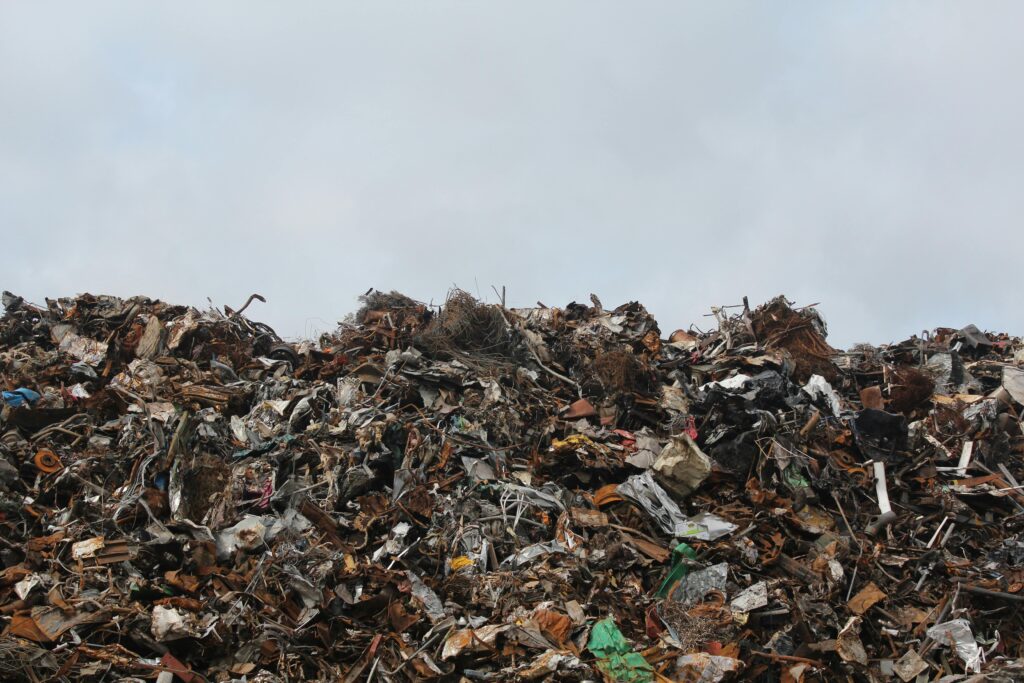
The Stark Reality of Plastic Recycling
Yazan Al Homsi, a prominent venture capitalist and advocate for sustainable technologies, sheds light on the harsh realities of plastic recycling. Despite widespread efforts to recycle, the majority of plastic waste still ends up in landfills, oceans, or incinerated. “Today, I don’t know if you know this, but less than 10% of waste plastic gets recycled,” Al Homsi points out. This revelation underscores the need to reevaluate our current recycling systems and consider innovative solutions.
The Ineffectiveness of Current Recycling Technologies
Al Homsi’s insights reveal significant shortcomings in existing recycling technologies. He explains, “The reason is that the current technologies that are available, they have a major limitation when it comes to contaminants.” This limitation significantly hampers the efficiency of recycling processes, resulting in a large proportion of plastic waste being diverted to landfills or incineration.
Moreover, traditional thermal recycling methods exacerbate environmental issues. “The current approaches that are out there are mostly thermal, and thermal is very bad for the environment, because basically, one, you’re using a lot of energy, so it’s not cost-efficient,” Al Homsi elaborates. The inefficiency and environmental impact of these methods highlight the urgent need for alternative solutions.
Public Perceptions vs. Reality: The Recycling Myth
There is a stark contrast between public perceptions of recycling and the actual outcomes. Al Homsi notes, “So when we do all the work of taking our, let’s say this cup, put it in the right bin, so on and so forth, ultimately 90% of it winds up in landfills, oceans or incinerated.” This discrepancy contributes to a growing sense of disillusionment with recycling efforts.
“I think people still look at the, especially when there’s been so much negative media about recycling, people think that the only thing that got recycled is them recycling the lie of recycling,” Al Homsi comments. The pervasive belief that individual recycling efforts significantly impact waste management is increasingly being questioned, necessitating a more critical examination of recycling systems.
The Role of Traditional Energy Companies
Traditional energy companies, often seen as culprits in environmental degradation, face a critical juncture. “A lot of the petrochem energy companies have this black eye on them, and I don’t think it’s going to go away except by execution, which goes back to the benefit of why I think they have to show their hand and they have to adopt new technologies that show that they’re actually doing, not just saying,” Al Homsi argues.
The pressure on these companies to adopt sustainable practices is mounting. However, genuine change requires more than just slogans and promises. “They may put a slogan and say, ‘We’re going to recycle X during this,’ and so on, but they really don’t because one, there’s no treaty, there’s no requirement except in Europe,” Al Homsi explains. The lack of binding international agreements often leads to superficial commitments rather than substantive action.
Aduro Clean Technologies: A Beacon of Hope
In the face of these challenges, innovative companies like Aduro Clean Technologies (CSE: ACT) (OTCQX: ACTHF) (FSE: 9D50) offer a beacon of hope. Aduro’s Hydrochemolytic™ technology (HCT™) addresses many of the limitations of traditional recycling methods. “If you compare that to current pyrolysis solutions, thermal solutions, you have 30% char. The issue with char is you basically have no use of it. It’s burnt material,” Al Homsi highlights.
Aduro’s technology significantly reduces the production of char, resulting in a higher quality product. “The immediate uplift is that your feedstock, you’re getting in something, you’re improving, you’re having a higher quality product immediately on the back of this,” Al Homsi explains. This innovative approach transforms plastic waste management from a cost center to a profit center, providing a strong economic incentive for adoption.
“If there is one that they can make money off of, or they can turn this from a cost center to a profit center, which is what Aduro advocates, then they’re more likely to do it,” Al Homsi emphasizes. Aduro’s solutions not only address environmental concerns but also offer financial benefits, making them attractive to both industry players and policymakers.
The Path Forward: Embracing New Technologies and Policies
The path forward requires a concerted effort from all stakeholders, including governments, industries, and consumers. The adoption of advanced recycling technologies and the implementation of stringent policies are crucial steps towards sustainable plastic waste management.
Al Homsi underscores the importance of international treaties and regulations in driving meaningful change. “If you produce 100,000 tons of plastic waste, plastic, and you only recycle 10%, which is the current standard right now, the delta between the 30% and the 10% is 20%. So basically 20,000 tons. So the 20,000 tons that are currently not being recycled, you’re going to be paying taxes on to the tune of 1,000 euros per ton. So that’s about 20 million euros per year recurring,” he calculates.
Such economic incentives can significantly influence corporate behavior, pushing companies to adopt more sustainable practices. However, the success of these initiatives hinges on robust enforcement and global cooperation.
Towards a Sustainable Future
Yazan Al Homsi’s insights paint a sobering picture of the current state of plastic recycling. The gap between public perceptions and the harsh realities of waste management underscores the need for innovative solutions and robust policies. Companies like Aduro Clean Technologies are leading the way with advanced technologies that offer both environmental and economic benefits.
The journey towards a sustainable future is fraught with challenges, but with concerted efforts from all sectors, significant progress can be made. By embracing new technologies and enforcing stringent regulations, we can turn the tide on plastic pollution and create a cleaner, more sustainable world. Al Homsi’s advocacy for sustainable practices and innovative technologies provides a roadmap for navigating this complex landscape. As we move forward, the integration of cutting-edge solutions and robust policies will be crucial in addressing the global plastic pollution crisis.












